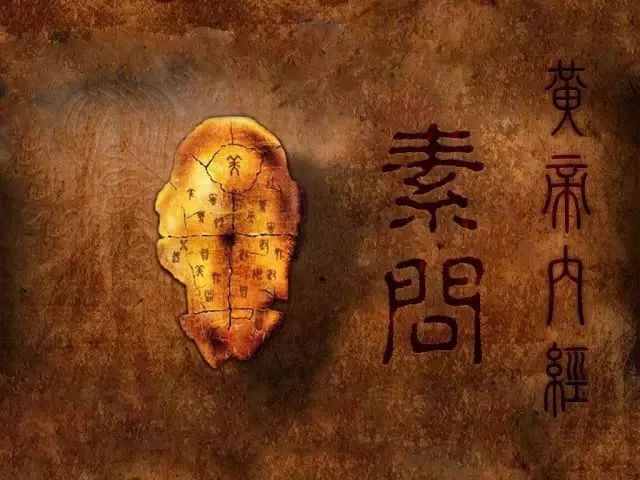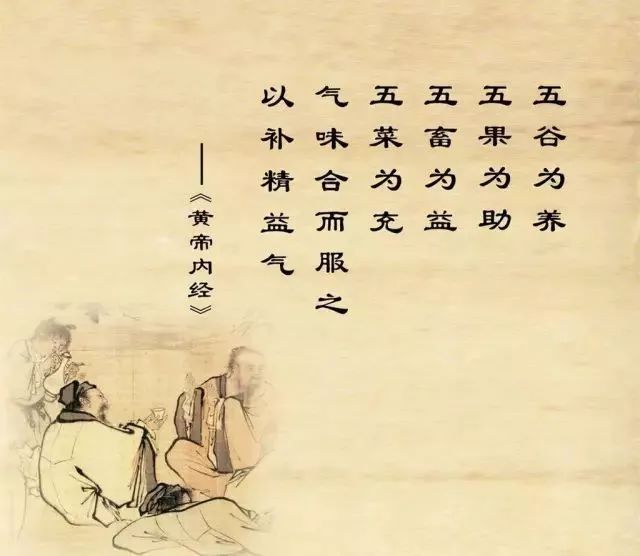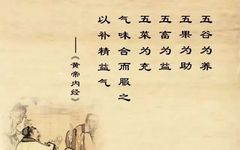
As long as it is a problem with the tendons, treating the liver is correct.As long as it is a problem with the bones, treating the kidneys is correct.As long as it is a problem with the muscles, treating the spleen and stomach is correct.As long as it is a problem with the blood vessels, treating the heart is correct.As long as it is a problem with skin diseases and hair, treating the lungs is correct.
Five Organs (Wu Zang)
▌1. Heart (Xin)The heart is the residence of the spirit, the master of blood, and the root of the pulse, belonging to the fire element in the Five Elements.Physiological functions:① Governs the blood vessels;② Governs the spirit; the heart opens to the tongue, connects with the pulse in the body, manifests on the face, expresses joy in emotions, and sweat in fluids. The heart is interiorly related to the small intestine.▌2. Lungs (Fei)The lungs are the place of the corporeal soul, the master of qi, belonging to the metal element in the Five Elements.Physiological functions:① Governs qi and controls respiration;② Governs the dispersing and descending of qi;③ Regulates the water pathways;④ Governs the hundred vessels and treats stagnation; assists the heart in regulating the circulation of qi and blood; the lungs connect to the throat, manifest on the skin, express through hair, open to the nose, express worry in emotions, and produce mucus in fluids; the lungs are interiorly related to the large intestine.▌3. Spleen (Pi)The spleen is the source of qi and blood transformation, the foundation of postnatal life, and houses intention, belonging to the earth element in the Five Elements.Physiological functions:① Governs transportation and transformation;② Governs the ascending of clear qi;③ Governs the containment of blood; opens to the mouth, connects with the flesh, governs the limbs, manifests on the lips, expresses thought in emotions, and produces saliva in fluids; the spleen is interiorly related to the stomach.▌4. Liver (Gan)The liver is the place of the ethereal soul, the storehouse of blood, the root of tendons, and governs the upward and active movement, belonging to the wood element in the Five Elements.Physiological functions:① Governs the smooth flow of qi;② Governs the storage of blood; opens to the eyes, connects with the tendons, manifests on the nails, expresses anger in emotions, and produces tears in fluids; the liver is interiorly related to the gallbladder.▌5. Kidneys (Shen)The kidneys are the foundation of pre-natal essence, house will, and the waist is the organ of the kidneys, belonging to the water element in the Five Elements.Physiological functions:① Stores essence, governs growth, development, and reproduction;② Governs water;③ Governs the inhalation of qi; in the body, they are the bones, govern the production of marrow, manifest on the hair, open to the ears and the two yin (anus and perineum), express fear in emotions, and produce saliva in fluids; the kidneys are interiorly related to the bladder.
Six Bowels (Liu Fu)
▌1. Gallbladder (Dan)Physiological functions: Stores and excretes bile, governs decision-making.▌2. Stomach (Wei)Physiological functions: Receives and digests food and fluids, the stomach descends to harmonize.▌3. Small Intestine (Xiao Chang)Physiological functions: Governs the reception and transformation of substances, separates the clear from the turbid, “the small intestine governs fluids.” ▌4. Large Intestine (Da Chang)Physiological functions: Transforms and excretes waste, the large intestine governs fluids.▌5. Bladder (Pang Guang)Physiological functions: Stores and excretes urine, relying on the kidney’s qi transformation function.▌6. San Jiao (Triple Burner)Physiological functions: Circulates original qi, governs the qi mechanism and transformation, and is the pathway for the movement of water and fluids.
Twelve Meridians Flow
▌Zi Hour (23:00–1:00)Gallbladder Meridian: Deep sleep! The gallbladder needs metabolism; if a person sleeps during the Zi hour, the gallbladder can complete its metabolism. At this time, the heart’s function is weakest, so if there are heart patients, prepare the Xuexin Wan (Heart Rescue Pill).▌Chou Hour (1:00–3:00)Liver Meridian: Deep sleep! This is the best time for liver repair; the waste blood needs to be eliminated, and fresh blood needs to be produced, completed during the Chou hour. One must enter deep sleep to provide the liver with sufficient energy. If not asleep, the liver continues to output energy to support thinking and actions, making it impossible to complete metabolism, leading to liver disease.▌Yin Hour (3:00–5:00)Lung Meridian: The transformation of yin and yang begins at this moment, transitioning from yin to yang. The body also enters a time of yang flourishing and yin declining. At this moment, the lung meridian is most active. The liver provides blood to the lungs, which then distributes it throughout the body. At this time, the body requires a large amount of oxygen. Patients with lung diseases such as asthma should take their medication during the Yin hour for better effects than during the day.▌Mao Hour (5:00–7:00)Large Intestine Meridian: Bowel movement! Drink a cup of warm water before defecation. At this moment, the large intestine meridian is vigorous, absorbing moisture and nutrients from food and excreting waste.▌Chen Hour (7:00–9:00)Stomach Meridian: Don’t forget breakfast! At this time, gastric acid is continuously secreted; if one goes hungry for too long, there is a risk of gastric ulcers, gastritis, duodenitis, and cholecystitis!▌Si Hour (9:00–11:00)Spleen Meridian: Drink water! (Drink more water at this time) The spleen is the overall coordinator of digestion, absorption, and excretion. The spleen is the foundation of postnatal life. To tonify the spleen: Job’s tears, red beans, and yam porridge. Throughout the day, drink about 2000 milliliters of water, approximately 5 bottles of mineral water, and keep drinking; do not drink any other beverages.▌Wu Hour (11:00–13:00)Heart Meridian: Take a short nap. The heart drives the circulation of blood, nourishes the spirit, nourishes qi, and nourishes tendons. A short nap can greatly benefit heart health, allowing for energy to be replenished in the afternoon and evening. Naps should not exceed 30 minutes; otherwise, it may disrupt sleep and lead to insomnia at night.▌Wei Hour (13:00–15:00)Small Intestine Meridian: The small intestine meridian adjusts the nutrition of the body during the day. If there is heat in the small intestine, the body will experience belching and gas. Therefore, lunch should be eaten before 1 PM for better absorption of nutrients.▌Shen Hour (15:00–17:00)Bladder Meridian: Urination! The bladder expels water and fluids from the body. If there is heat in the bladder, it can cause bladder cough, which is coughing with urinary incontinence. The bladder is most active, so it is suitable to drink more water. At this time, do not hold urine, as it can lead to “urinary retention.” ▌You Hour (17:00–19:00)Kidney Meridian: The kidneys are the essence of reproduction and the essence of the five organs and six bowels. The kidneys are the root of pre-natal essence. After the Shen hour, the body expels fire and detoxifies, and the kidneys enter a time of storing essence during the You hour. This is a time for men. For those with kidney function issues, massaging the kidney meridian at this time is most effective.▌Xu Hour (19:00–21:00)Pericardium Meridian: The pericardium meridian. This moment creates conditions for peaceful sleep. Maintain a calm mindset.▌Hai Hour (21:00–23:00)San Jiao Meridian: Time to sleep! This is when the San Jiao, the largest organ, operates, governing all qi and unblocking the water pathways. During the Hai hour, the San Jiao connects with the hundred vessels. It is a time for rest and rejuvenation.

